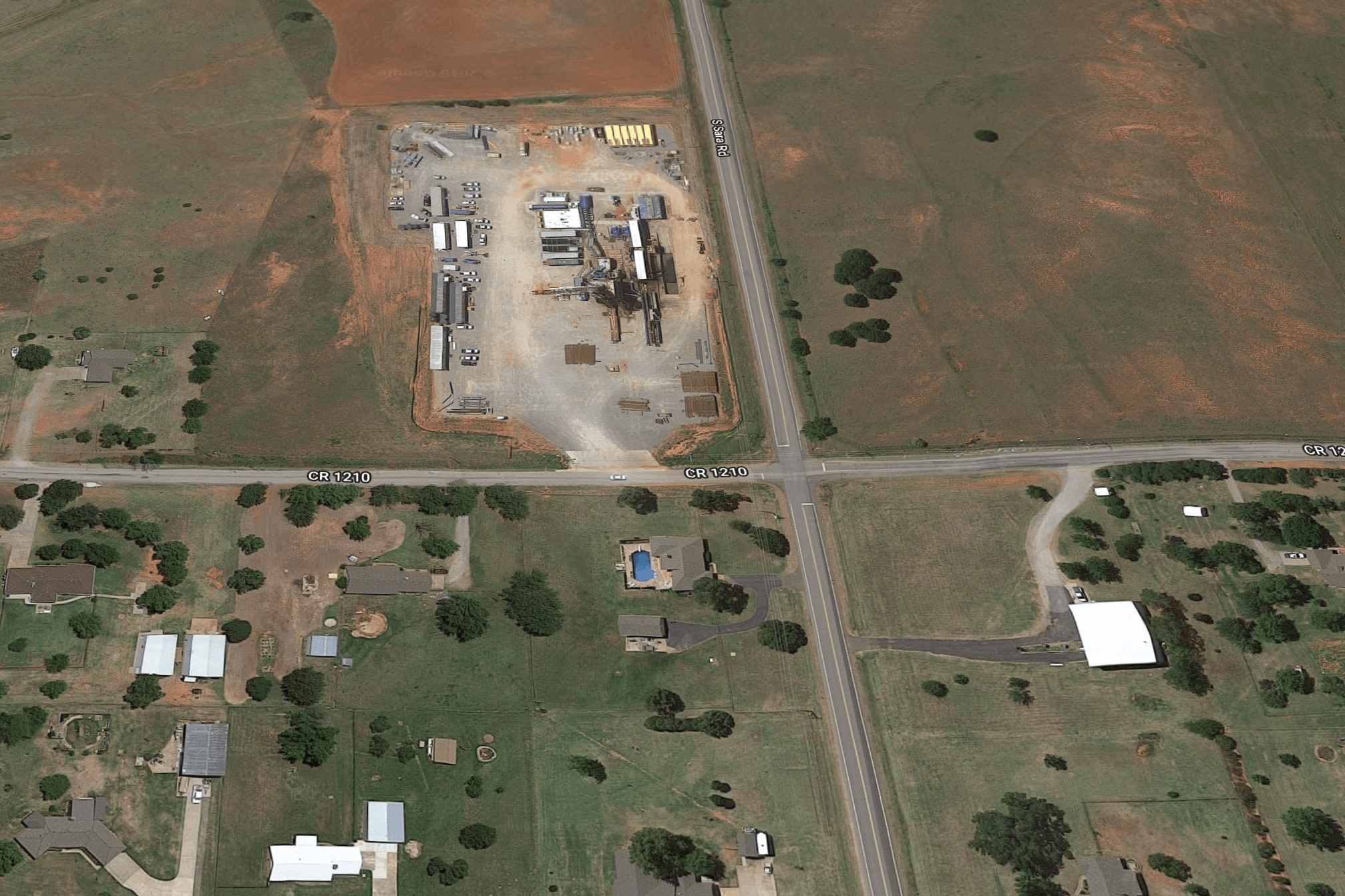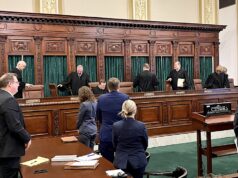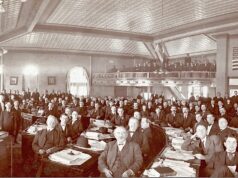(Correction: This story was updated at 12:10 p.m. Wednesday, March 14, to correct reference to Matt Skinner’s comments. NonDoc regrets the error.)
A former mayor is attempting to return local municipalities some authority to limit the operations of oil and gas well sites near private property.
SB 1257, authored by freshman Sen. Lonnie Paxton (R-Tuttle), grants cities, towns and counties the right to restrict oil and gas activities by establishing ordinances that control road use, noise and pollution if the site is within 1,000 feet of a business or home. Paxton said he decided to draft the bill after seeing firsthand how oil and gas well sites were conflicting with the daily routines of Tuttle citizens.
“I have one of the most active districts in the state in oil and gas production” Paxton said. “I live on a farm between Tuttle and Minco, and I now feel like I live inside of an industrial park.”
In 2015, Gov. Mary Fallin signed SB 809 into law. That measure prohibited municipalities from enacting ordinances on oil and gas well sites stricter than state laws and prevented cities and towns from banning local drilling. The bill gave the Oklahoma Corporation Commission control of site regulation, although other municipal regulations still exist. According to OCC public information manager Matt Skinner, however, the commission has not heard any complaints this year from oil and gas companies about those municipal regulations.
Tuttle, other towns tussle with oil companies

Tuttle’s city manager, Tim Young, said oil and gas well sites have caused over $1 million in road damages. He also said complaints about site infringements now take up a substantive part of his day. According to Young, out of the 90 well sites currently operating within the city limits of Tuttle, 17 of those have sprouted up in the past three years.
“When they drill next to neighborhoods, some companies are better than others, but the nature of oil and gas … is noisy,” Young said. “We want the activity happening in our area in a reasonable manner. If they fixed what they tore up, that would go a long way to making the community feel like they’re not being exploited.”
In a 2016 report from the Journal Record, Young estimated that one mile of road costs $350,000 to fix, but without necessary funding from sales taxes, such a renovation would be far-fetched.
“When I watch my 16-year-old son pull out on the highway every morning to go to school along with all of those oil semis driving by, it’s concerning,” Paxton said. “It’s a life, safety and peace-of-mind [issue] out there.”
Young cited two companies, Linn Energy and Citizen Energy, as the main sources of complaints in oil and gas production in and around Tuttle. Towns like Kingfisher, Union City and Minco are experiencing similar problems, according to Paxton.
The city of Mustang is currently in a lawsuit with Citizen Energy regarding drilling activities within the city limits of Mustang. After the city filed an injunction to stop Citizens Energy from drilling two wells it previously had permission to drill, the two parties took their case to the Oklahoma Supreme Court on Feb. 28. Ponca City filed a request to support Mustang in their case. The litigation is ongoing.
Industry advocate: Oil and gas industry needs certainty
Tim Wigley, president of the Oklahoma Independent Petroleum Association, believes the power to regulate oil and gas should fall under the Oklahoma Corporation Commission, because differences in municipal ordinances would frustrate oil and gas companies and hurt the state economy.
“You can have a maze of communities across the state that all have different rules and regulations, and you can quickly drive an industry to say, ‘No, we’re not going to deal with that,’” Wigley said.
Wigley formerly worked in Colorado’s energy sector, which experienced the same conflict between its oil industry and many municipalities. Colorado’s oil and gas regulations have become stricter after the explosion of a Firestone home left two people dead. Many municipalities around Colorado have followed suit to increase distances from which pipelines can sit from residential buildings. Wigley said this type of action would do more harm than good to Oklahoma’s oil and gas industry.
“When you’re talking about the kind of investment and private-equity dollars that are looking for some certainty, if you create more uncertainty by local communities and local counties, that is not going to be good for any industry,” Wigley said.
Paxton: More interested in ‘solving the problem’
As Paxton revises his bill to present to the Senate floor, he said his main interest is helping his district rather than restricting oil and gas. He also said he would be open to putting the bill aside if that meant the conflict could be solved.
“I would be much more interested in the problem being solved than getting legislation passed,” Paxton said. “I’m not that interested in having my name on legislation. I’m interested in solving the problem.”






















